February 2, 2022 | Wednesday
“Toka”, a youth development non-profit organization, since 2017 has been successfully implementing the Service-Learning programme; developing critical thinking, communication, and leadership skills of Kosovo’s youth, as well as teachers and mentors.
To learn more about the Service-Learning programme supported by the EU, we have interviewed Hatixhe Zeka, project manager.
H. Zeka: Service-Learning started in 2017 and is one of TOKA’s biggest programmes. Since 2020, this programme is being supported by the EU. Service- Learning is a pedagogical approach that integrates non-formal education, experiential learning, active citizenship, and volunteering. The Service-Learning methodology can be implemented in the classroom or outside the school – as an extracurricular activity.
Through this approach, youth develop new skills like critical thinking, communication, leadership, teamwork, problem-solving. They contribute by implementing Service-Learning projects in the community – where they tackle real problems and treat those problems by involving their community in their initiatives. On the other hand, teachers and mentors learn the methodology of Service-Learning, an innovative approach in education, and have shown excellent results in different countries of the world.
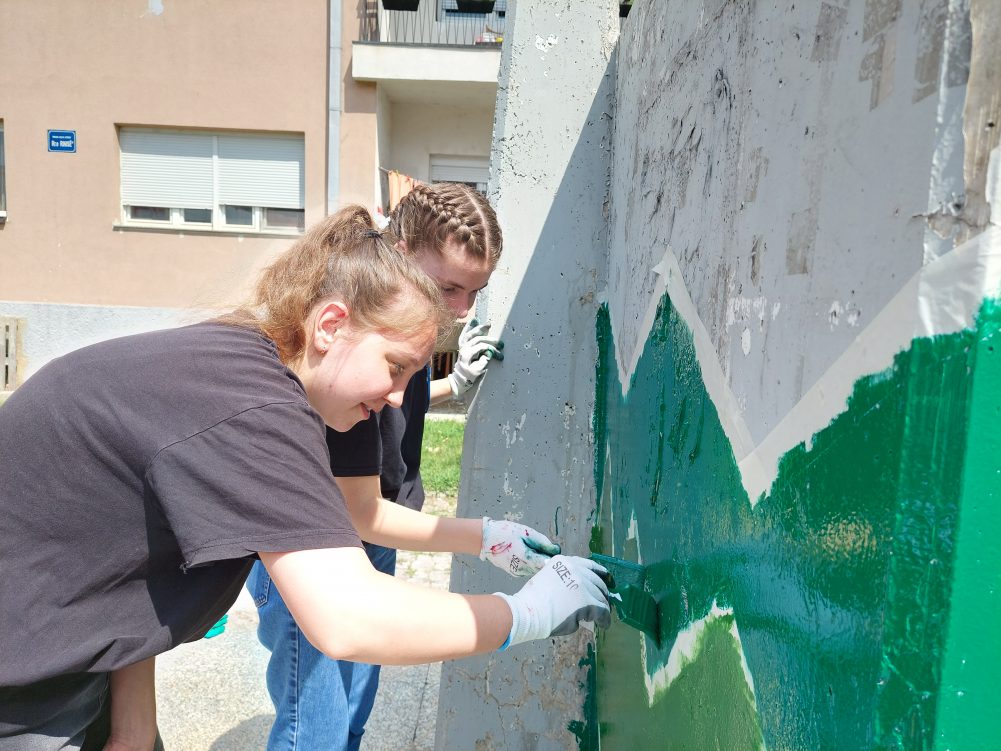
The Service-Learning project aims to empower youth in the sense that they are active citizens and are not passive to the circumstances around them. They try to make changes in their community and gain new skills and knowledge during this process.
H. Zeka: Service- Learning is a well-known programme, and many countries have embedded this methodology in their formal education because of its many benefits. Service-Learning is similar to scouts, but it’s more structured and involves schools, teachers, and local or central government. Since TOKAs aim is to accelerate social change in Kosovo by investing in its youth – we have seen that this model is excellent to achieve our mission. We have adapted the programme by collaborating with a partner organization from Romania, which started implementing the Service-Learning methodology in 2000, and they have much experience in this field. In the project’s first year, they helped us with the training and activities and supported us in every project phase.
H. Zeka: Since Service- Learning primarily involves teachers, mentors, youth, and local and central government, these target groups have different activities.
The main activities for teachers and mentors are trainings about the Service-Learning methodology to implement the program during the school year. After the teachers and mentors (young people above 18, like students) have the training, they go back to their communities and open a club with youth from their community or school, and they start weekly meetings, per at least one academic year. Besides the weekly meetings with youth, teachers and mentors have to implement at least one Service-Learning project based on community.
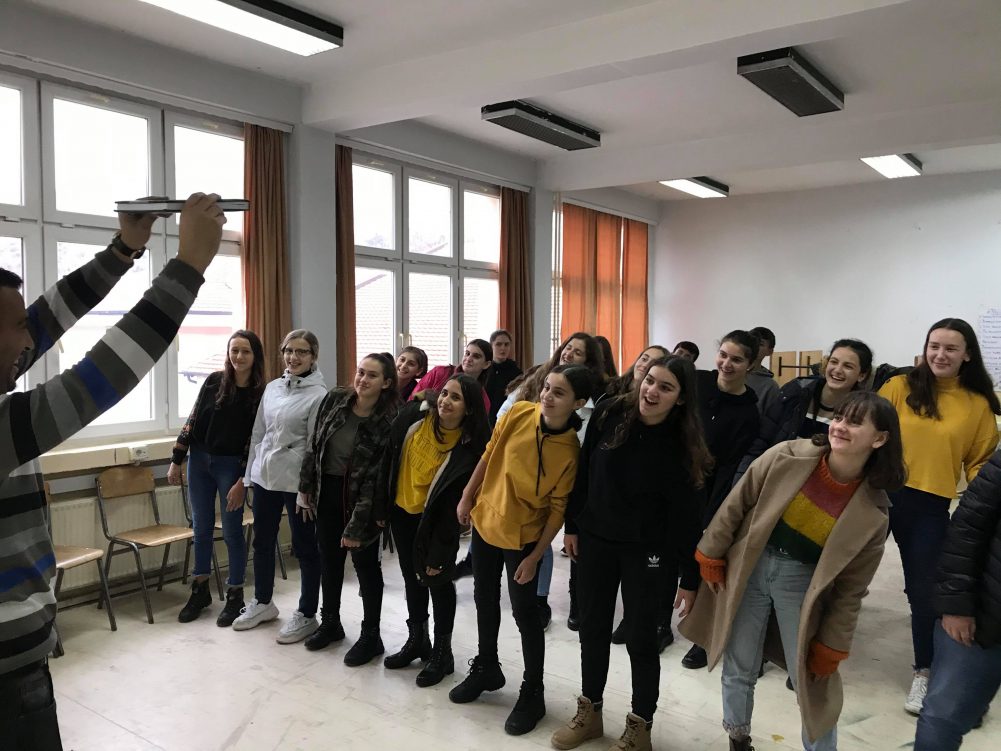
Besides the training, teachers have other possibilities for capacity-building, such as designing modules with experiential learning activities for formal education, participating in Service-Learning Conference in Kosovo or abroad, doing exchanges, or study visits abroad to collaborate with their colleagues from other countries, and networking and exchange experiences with others.
On the other side, the main activities for (the underage) youth (or as we call them Super-Volunteers) are applying to be a member of a club for at least one school year, having chances to be part of summer camps, and participating in designing and implementing a Service-Learning project community. Besides, that youth can do environmental (hiking from Gërmia to Badovc Lake) or cultural visits in Prishtina (see a movie or go to the theatre, philharmonic of Kosovo, etc.), to expose and depth their environmental and cultural knowledge.
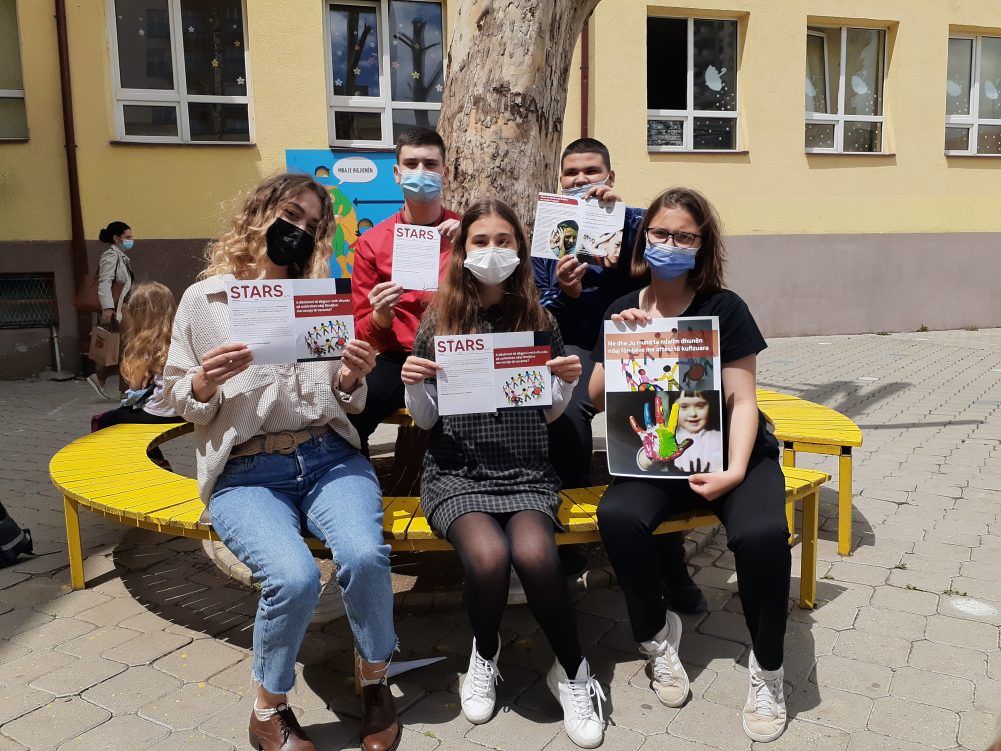
Activities related to local and central government focus on advocating and promoting Service-Learning and supporting this program. Last year, the President of Kosovo supported the teachers who were part of the Service-Learning training 2021 by visiting them and congratulating them on what they were doing. On the other side, the Minister of Education opened the Regional Service-Learning Conference in December 2021 by positively supporting this program to impact Kosovo’s education system.
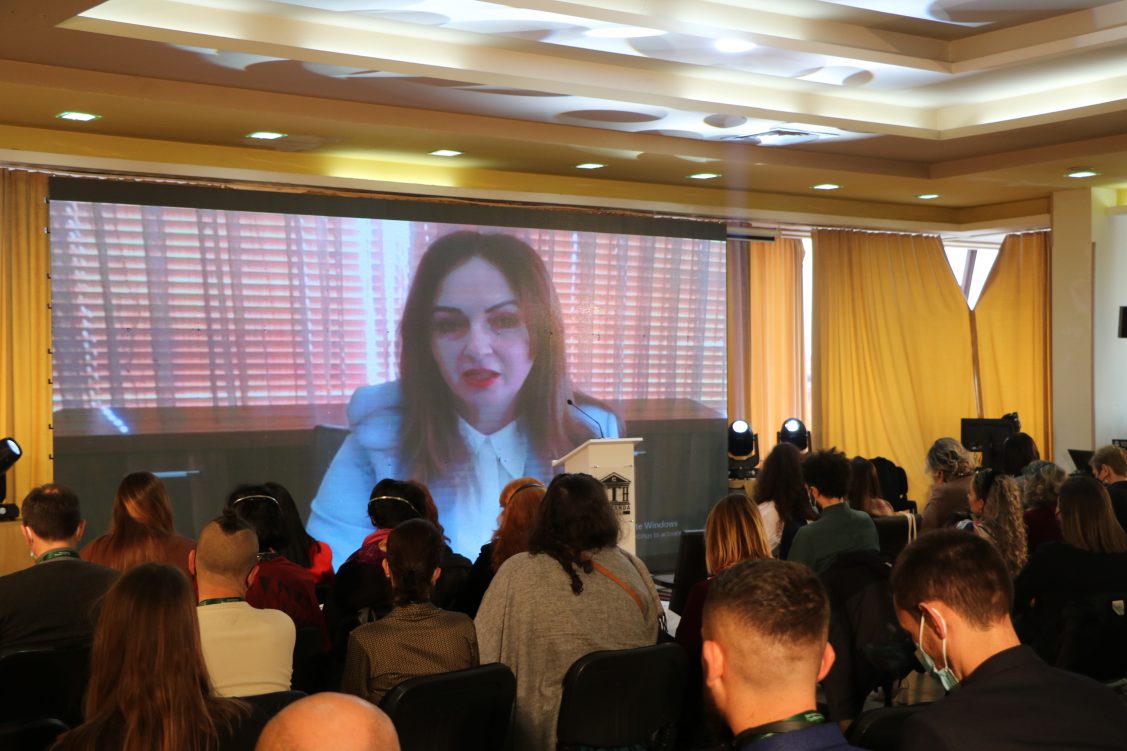
Also, TOKA continues to collaborate with several municipalities. They contribute in sharing the news about the open calls to join the Service-Learning program or giving support to Service-Learning clubs and giving funds for the Service-Learning projects.
H. Zeka: The Service-Learning program passes around 500 youth and trains about 50 teachers and mentors every year. Only this year, we have approximately 35 clubs in 15 municipalities. All the work that youth teachers and mentors do is voluntary.
This number tells us that youth wants to be part of this kind of initiative and contribute to their community. Also, their engagement is not only for one week or two, but they are engaged for at least nine months – which is fantastic!
Furthermore, our measurement tells us that youth who are part of the program are more likely to engage in other voluntary initiatives organized by other NGOs or local governments. This data shows us that the Service-Learning program raised awareness for volunteering to their peers and showed it by participating in different voluntary initiatives.
H. Zeka: I would say definitely yes. I think the project impacted the majority of the youth who were part of the programme for promoting and advocating. This can be seen on different occasions – when their siblings join the programme later on, or when you see various involvements of the alumni in other movements, e.g., leading protests or being part of different forums for human rights, or we have examples that alumni had become Service-Learning club leaders after they turned eighteen – by opening clubs in their community because they want to give a chance to new young people to experience the same things that they had experienced when they were club members.
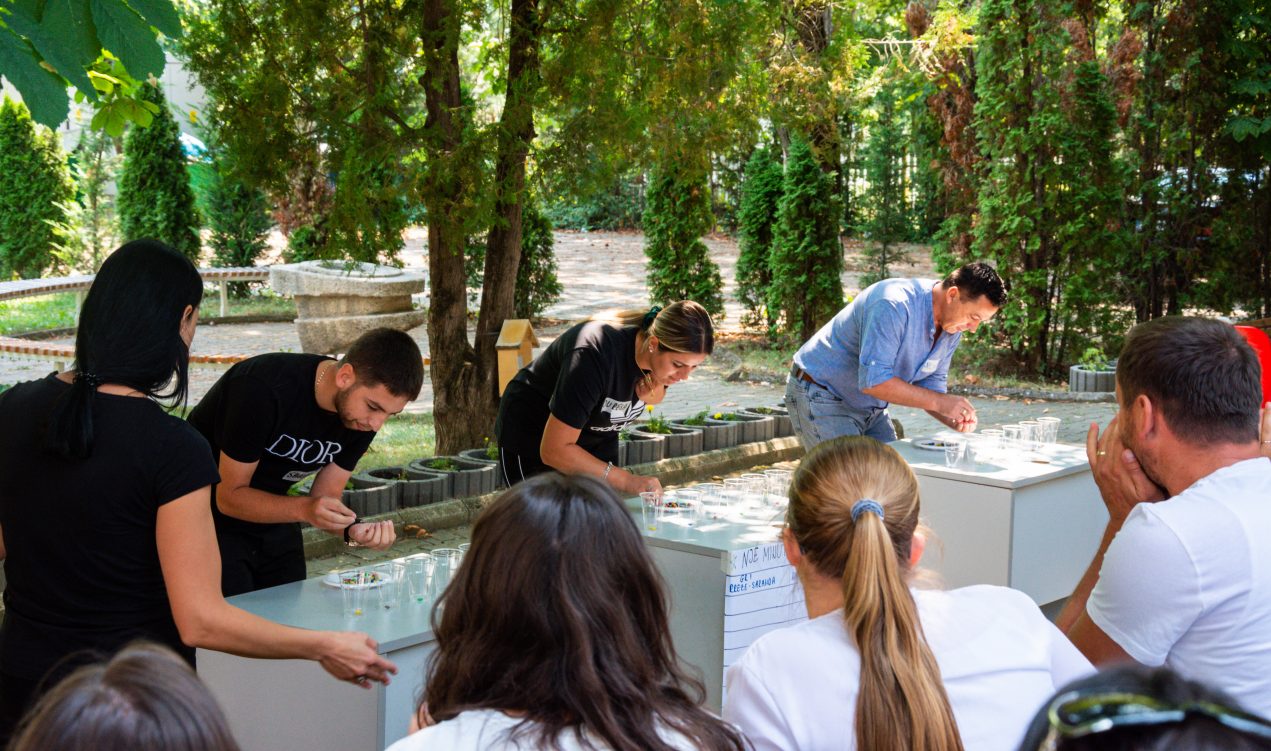
These facts prove that Service-Learning impacted the youth, and we see how this impact is expanding to one another youth every year.
H. Zeka: Expand Service-Learning in other municipalities and other schools and try to include many other young people. Another essential long-term plan is to continue integrating the Service-Learning with formal education.